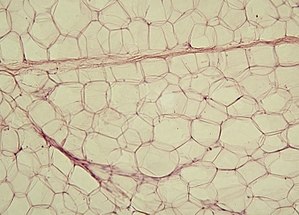Top Cancer Cause in Women
 Image via Wikipedia
Image via Wikipedia
Submitted by Denise Reynolds RD on Sep 24th, 2009
Posted under:
* Obesity Cause and Help
Being overweight or obese accounts for up to 8% of the cancers in Europe, resulting in an estimated 124,000 new cases in the past year. Women were most affected; with an increased cancer rate almost triple that of men who were also obese. Two other major causes of cancer in women, smoking and hormone replacement therapy (HRT), are dropping.
According to Andrew Renehan, a cancer expert at the University of Manchester in England, “Obesity is catching up at a rate that makes it possible it could become the biggest attributable cause of cancer in women within the next decade”. These findings were presented in Berlin at the joint meeting of the European Cancer Organization and the European Society for Medical Oncology.
The research was based on information from the World Health Organization and the International Agency for Research on Cancer that examined cancer risk in 30 European countries. Those with a Body Mass Index (BMI) over 25, defined as overweight, were more likely to be diagnosed with cancerous tumors, either new or recurrent. The risk was more pronounced in the Eastern European countries of Czech Republic, Latvia, Slovenia, and Bulgaria.
A similar study from the June 2009 issue of Cancer Epidemiology Biomarkers and Prevention found that colorectal cancer incidence is increasing in Eastern Europe due to a Westernization of the diet leading to obesity. These factors include diets high in red and processed meats, inadequate fruit and vegetable intake, and a decrease in physical activity.
Colorectal cancer, breast cancer, and endometrial cancer accounted for 65% of all cancers linked to obesity. The obesity and cancer link is likely related to hormonal changes that occur, particularly that of estrogen, which helps tumors grow. Estrogen is produced in adipose tissue, and levels are 50 to 100 percent higher among post-menopausal obese women.
Another factor for the increased cancer risk is that of the delay in appropriate testing. A study from the Obesity Research Journal found that severely obese women were more likely to delay screening than normal weight women. Breast cancer detection in particular becomes more difficult with increased upper body fat tissue.
According to the National Cancer Institute, obesity may be responsible for 25-30 percent of all US cancers, including that of the kidney in addition to the cancers seen prevalent in the European study. Other cancers with an obesity link include those of the gastrointestinal tract, particularly the gallbladder and the pancreas.
Weight loss through healthy diet and increased physical activity can lower the risk of several cancers, particularly that of the colon and breast.
Written by Denise Reynolds RD
Exclusive to eMaxHealth
Charlotte, NC
Sources include ECCO-The European Cancer Organization, WebMD, and The National Cancer Institute
Source:
Denise Reynolds RD
Discover The Truth About Cancer And How To Eliminate Sickness And Disease Naturally By Health Expert Dr. Thompson Click Here!

9:54 PM
|
Labels:
Body Mass Index,
Breast cancer,
Cancer,
Colorectal cancer,
Health,
Hormone replacement therapy,
Obesity,
World Health Organization
|
This entry was posted on 9:54 PM
and is filed under
Body Mass Index
,
Breast cancer
,
Cancer
,
Colorectal cancer
,
Health
,
Hormone replacement therapy
,
Obesity
,
World Health Organization
.
You can follow any responses to this entry through
the RSS 2.0 feed.
You can leave a response,
or trackback from your own site.
Subscribe to:
Post Comments (Atom)
0 comments:
Post a Comment